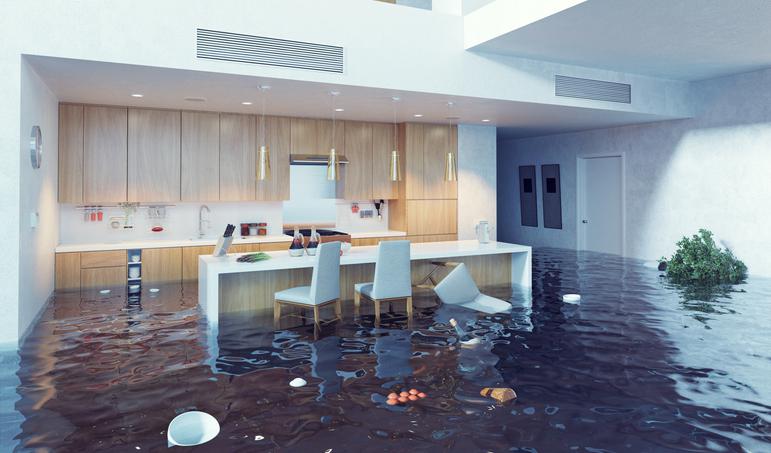
Whether it's caused by a hurricane storm surge or torrential rains, flash flooding can become a destructive force in an instant. If you live in an area with the potential for flooding, it’s important to plan ahead and know what to do in the event of such conditions. Use these tips to prepare for flooding, weather the storm and clean up afterward:
Before the Flood Arrives:
- Put together an emergency preparedness kit with everything you’ll need to survive for several days. This should include water, non-perishable food, a portable radio, batteries, first aid supplies, and other essentials.
- Create a detailed plan with your family to determine how you will contact one another and gather together in the event of a catastrophic flood. This planning is essential if cell phone service becomes disrupted.
- Consider installing or relocating your home’s critical equipment like its HVAC system, hot water heater and electrical panel high off the ground so it has a better chance of surviving a flood.
- Seek coverage through the National Flood Insurance Program to reduce your liability to loss. Most homeowners' insurance policies don’t cover flood damage.
During the Flood Event:
- Remain aware of developing conditions, monitoring TV, internet or radio for the latest information from local, state or federal officials. If an evacuation is ordered, follow the instructions. Floods can develop quickly, with unpredictable and life-threatening results.
- Connect a sump pump to your basement drain plumbing if it’s safe to use electrical equipment in your home.
- Disconnect any non-essential electronics and relocate them to the highest floor of your home. Do the same for any important items that can be stowed away above the potential flood line.
- Be prepared to shut off your home’s electricity and gas at the source. In the event of severe flooding, this can help reduce the risk of a fire.
- Don’t use any electrical appliances or equipment if they’ve been damaged by water, and don’t touch any cords, plugs or outlets in an area with standing water.
In the Aftermath:
- Take photos and notes to document the condition of your home, and contact your insurance company as soon as possible.
- Clear all household drain plumbing and use sump pumps to get any standing water out of your home.
- To avoid a health hazard, contact professional sewer and flood restoration technicians, such as those with our sister brand STOP Restoration, to repair damage to your septic tank or sewer outlet.
- Have a professional evaluate your gas and electric connections before reactivating them.
- Air out your home by opening doors and windows and placing fans throughout the area. Quick attention to this step may prevent the formation of mold and mildew, a serious health hazard.
- Replace or fully disinfect any part of your home or furnishings that came in contact with floodwater, especially if sewage backup was involved.
If you’re looking for other opportunities to safeguard against flood damage, or if you’re facing repairs in the aftermath of a recent flood, call a qualified plumber today at 1-877-BEN-1776 or contact us online. Or, if you're dealing with serious water damage, call STOP Restoration. Their team will arrive at your home promptly, assess the damage, and provide a plan of action for restoration.
